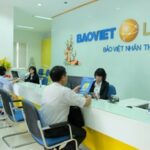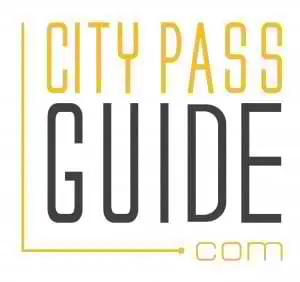A quick search of all schools in Ho Chi Minh City suggest that there are around 10 different curriculums on offer to students, including German, French and Finnish alongside the more common British and American options.
For parents looking to find the best school for their child, choosing a school with an appropriate programme for their needs can be a time consuming and confusing task. At CityPassGuide: Education, we’ve been researching and summarising the different options available to students in the city.
For anyone considering enrolling at schools such as Renaissance International School or British Vietnamese International School, here is our guide to the British National Curriculum.
Education in the U.K
In the U.K. schools are either funded by the government and as a result are free for all students, or they are privately funded, and fees are charged for students to attend. About 94{b02977565a1bbeb324a995b06a5bc2d612c2d39b7eb0fa5ae54ce37a48e29ee8} of students attend government funded schools, where the system is regularly considered one of the top performers in international education with all students receiving a thorough introduction to ‘core subjects’ Maths, English Literature, English Language and Science.
There are noticeable differences in the curriculum followed in Scotland and those followed in Wales and England. However, all government funded schools in the U.K follow a National Curriculum, which, put simply, is a set of subjects and standards used by primary and secondary schools in the UK to ensure that children learn the same things. Each curriculum covers what subjects are taught and the standards children should reach in each subject.

Despite having a national curriculum to follow, teachers are still able to develop exciting and stimulating lessons to deliver the necessary materials. As a result, individual experiences of students may vary but their overall education remains the same.
Legally, students in the UK can leave school when they are 16 years old. However, students who wish to attend university often continue in full time education until they are 18 years old, studying AS and A’ Levels in England and Wales, or Higher or Advanced Higher in Scotland.
Key Stages and Assessment
In England and Wales, the national curriculum is divided into the following ‘key stages’, each of which has its own learning objectives and at the end of which, formal assessment will take place.

Early Years: students aged 3 to 5, assessment at 5 years old.
Key Stage 1: students aged 5 to 7, national assessments at 7 years old in English, maths and science
Key Stage 2: students aged 7 to 11, national assessments at 11 years old in English and maths, teacher assessments in science
Key Stage 3: students aged 11 to 14
Key Stage 4: students aged 14 to 16, national assessments (G.C.S.E.) in all subjects.
Key stage 5 (optional): students aged 16 to 18, national assessments (A’ Level)
For students aged 5 to 11 (KS1 and KS2), compulsory national curriculum subjects at primary school are:
- English
- maths
- science
- design and technology
- history
- geography
- art and design
- music
- physical education (PE), including swimming
- computing
- ancient and modern foreign languages (at key stage 2)
Schools often also teach:
- personal, social and health education (PSHE)
- citizenship
- religion (parents can request for their child to be removed)
- modern foreign languages (at key stage 1)
In these early Key stages, communication skills receive significant focus, with the priorities for young students being that they can read easily and fluently, acquire a wide vocabulary and that they are able to speak comfortably and express their own ideas.
As a result, Key stage 1 and 2 tests cover the students’ ability in English reading, English grammar, punctuation and spelling and maths.
At Key stage 3, it becomes for students to study a modern foreign language. In the UK, the most common choices are French, German and Spanish, however schools in Ho Chi Minh City regularly offer a much wider range of languages including Vietnamese, Chinese and in some cases Korean.
GCSEs & IGCSEs
At Key stage 4, students based in the UK begin studying for GCSEs (General Certificate of Secondary Education). GCSEs are available in a huge range of subjects including English language and Literature, Mathematics, Economics, Geography, History, Biology, Chemistry and Physics. This is to allow students to access any Key Stage 5 (A’ Level, IB or Foundation) programme that may interest them once they have completed their compulsory education.

Students will often study up to 12 subjects at this level, with English literature, English language, Maths and Science being compulsory for all students.
At international schools in Vietnam, students more commonly study IGCSEs (International General Certificate of Secondary Education). Equivalent to GCSEs, the IGCSEs are also available in a wide range of subjects and are highly respected in further education institutions across the world.
For IGCSE students, English Science and Maths are compulsory and many schools require students to study a minimum of 5 or 6 subjects.
A’ Levels and International Baccalaureate
After taking GCSEs, the vast majority of students in the UK who wish to study at University continue to study A’ Levels. The Advanced Level qualifications are usually studied over the course of 2 years, and lead to qualifications recognised for entrance to higher education institutes in the UK and many others worldwide. Most higher education institutes require a minimum of 3 subjects to be considered sufficient for entry.
There are no compulsory subjects for A Level students meaning that students are free to choose the subjects that they are most interested in or those which they think will be most useful for their future studies or career. Before choosing which subjects to study, students are encouraged to think about which university or college they would like to apply to and which course they would like to study as each Higher Education institution may specify grades in certain subjects to be achieved before a student is eligible to be enrolled.

Subjects include English Language & Literature, French, Maths, Biology, Physics, Chemistry, History, Geography, Psychology, Economics, Art, Information Technology and Modern Foreign Languages such as French, German, and Spanish.
In Ho Chi Minh City, many international schools offer International Baccalaureate courses to students aged 16 and over. Whilst the IB qualifications in the UK are only offered by a small number of schools, all university admissions services accept IB qualifications.
Overall, the British National Curriculum offers a thorough yet flexible education for students of all ages. International Schools in Ho Chi Minh City offer high quality curricula that are compatible with UK national curriculum standards. However, we always suggest that you discuss your child’s individual needs with any school that your child may be considering attending. For further information about the National Curriculum and specific subjects visit the British Government website.
For information about other Curriculums on offer in Ho Chi Minh City’s international schools, visit the CityPassGuide: Education resources pages.






